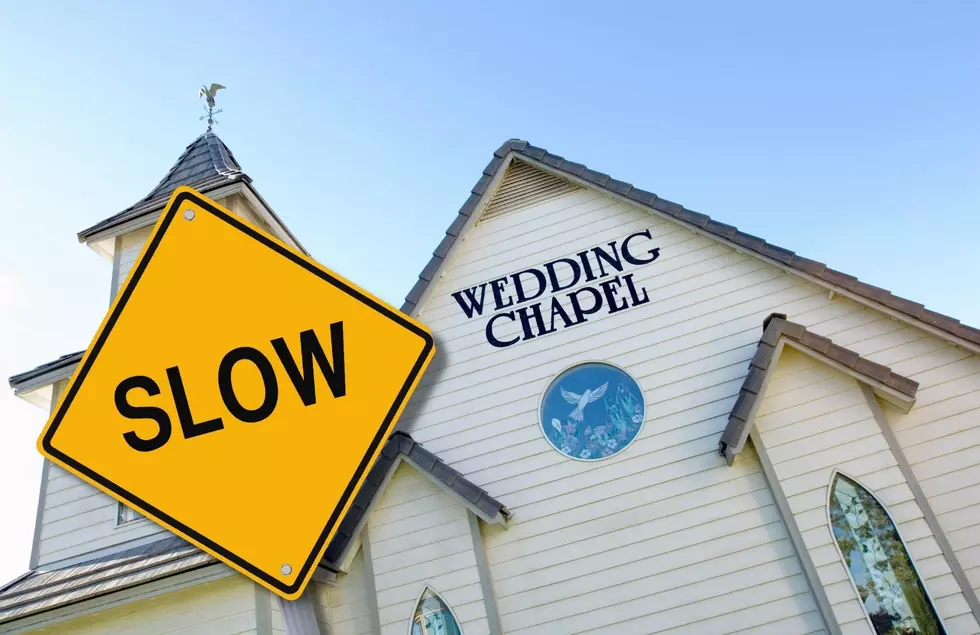
Want Your Common-Law Marriage Recognized in Michigan? Here’s How
Did you know that if you've been with your significant other long enough, you can be considered married without actually having the big to-do of a wedding or even a marriage license? That is, as long as you don't live by Michigan laws...

What is Common-Law Marriage?
Common-law marriage, as defined by the National conference of State Legislatures (NCSL), is "a legally recognized marriage between two people who have not purchased a marriage license or had their marriage solemnized by a ceremony."
Now, there are a multitude of reasons a couple would choose this type of a partnership but, according to NPR, it basically means both parties involved can receive the same benefits as traditionally married couples when it comes to "economic and legal goodies." Those "goodies" being things like tax breaks as well as certain rights like inheritance, power of attorney, etc.
However, by entering into a common-law marriage, IS Family Law shares you do have to come up with some sort of "cohabitation agreement" in order to break down the division of assets should you break up. As NPR put it, "But if you break up, you need to get divorced. As in, a traditional divorce. There is no common-law divorce."
Legal Requirements for a Common-Law Marriage
As someone who has been in a relationship going on seven years now, it's a joke we hear often, "if Michigan still did it, you guys could be common-law married." We will get to why we can't actually do that in Michigan here in a few, but it got me thinking, what does it take to actually be common-law married?
Turns out, it's not just crossing a certain anniversary threshold and the government just automatically says "okay, you two lovebirds are basically married now", as pointed out by NPR.
For example, family law professor Marsha Garrison of Brooklyn Law School told NPR that the most common time "requirement" she hears of is seven years, though there's no known information to really back that up. Meanwhile, others argue 10 years and other seemingly arbitrary amounts of time.
"To enter into a common-law marriage, a couple generally has to satisfy these requirements: be eligible to be married and cohabitate in one of the places that recognize common-law marriage, intend to be married and hold themselves out in public as a married couple," NPR reports.
To break it down further, NPR states that whether a couple lives together for one day or a few years, states don't actually have an amount of time required and any couple that agrees to be married, tells others that they are, etc. are eligible for a common-law marriage...if their state allows it.
Does Michigan Allow Common Law Marriage?
While it is reported Michigan "abolished" common-law marriage in 1957, there are still ways to have it recognized here in the Mitten, should you find yourself in that arrangement. Turns out, not even domestic partnerships are legally recognized either, except in a select few cities.
So what can you do to have a common law marriage in Michigan?
For starters, according to Bank Rifkin Law, if you entered into a common-law marriage in Michigan prior to 1957, you're "grandfathered in."
If you wish to move from another state that allowed common-law marriage, there's a few requirements you'll need to fill.
Michigan Recognizing Common-Law Marriages From Other States
IS Family Law states Michigan can recognize out-of-state common-law marriages once they assess the validity of the marriage based on if the couple has fulfilled all requirements for such an arrangement in their home state, as well as cohabitated there. They also will ask that the couple has each other named as both legal and medical power of attorney.
Furthermore, per Marriage Laws' article titled "Common Law Marriage Michigan", the State of Michigan will also ask for an established date of when the marriage was declared, cohabitation agreements expressing the division of property should the relationship end as well as validation the relationship began "no meretricious" AKA not based on promises of sexual relations.
Basically, at the end of the day, if you wish to have a legally-recognized common-law marriage in Michigan, you have to move out of state to one that does recognize it, live together there for a hot minute, get all your affairs in order and then move back...sounds easier to just get the license or have the wedding, doesn't it? That or it's at least what the State of Michigan would rather have you do...
Celebrity Couples Who Secretly Got Married
LOOK: What major laws were passed the year you were born?
More From 94.9 WMMQ









